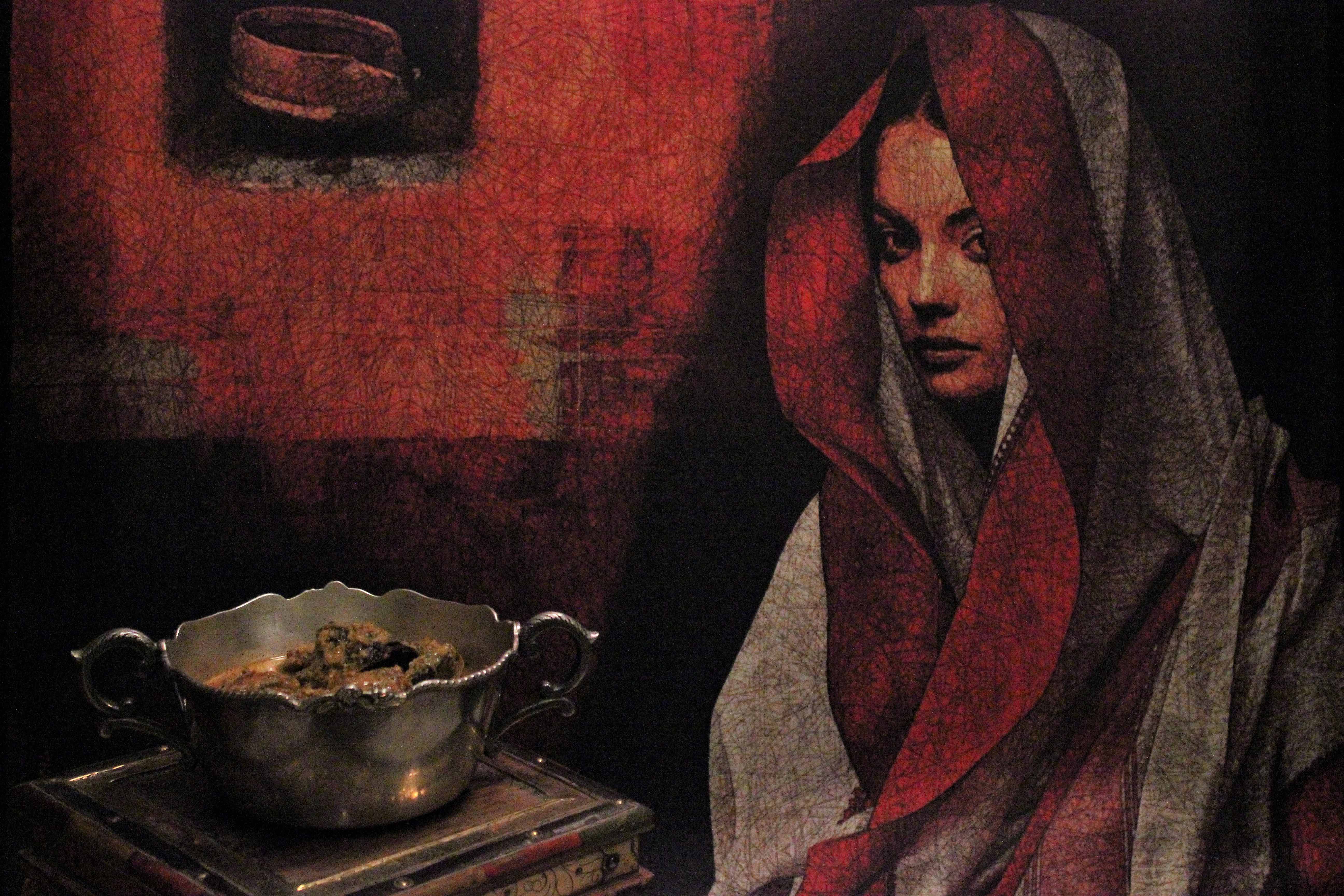Macher Jhol, also called sarson maach or mustard fish curry is a traditional Bengali dish. In this curry, the fish is cut into rings, marinated with turmeric and salt, then fried and added to a gravy of tomatoes, onions, ginger, garlic, using the special panch-phoran spice to bring out the taste, much loved by the Bengali community. It is best eaten with simple boiled rice.
This recipe is shared by Kabita Mondal, the resident cook of the Kakar family of Kolkata, India. The Kakar family has roots in the city of Amritsar but have been living in Kolkata for a long time. Myna Kakar is a reputed art curator of the Verandah Art Gallery, representing leading Indian artists and sculptors.
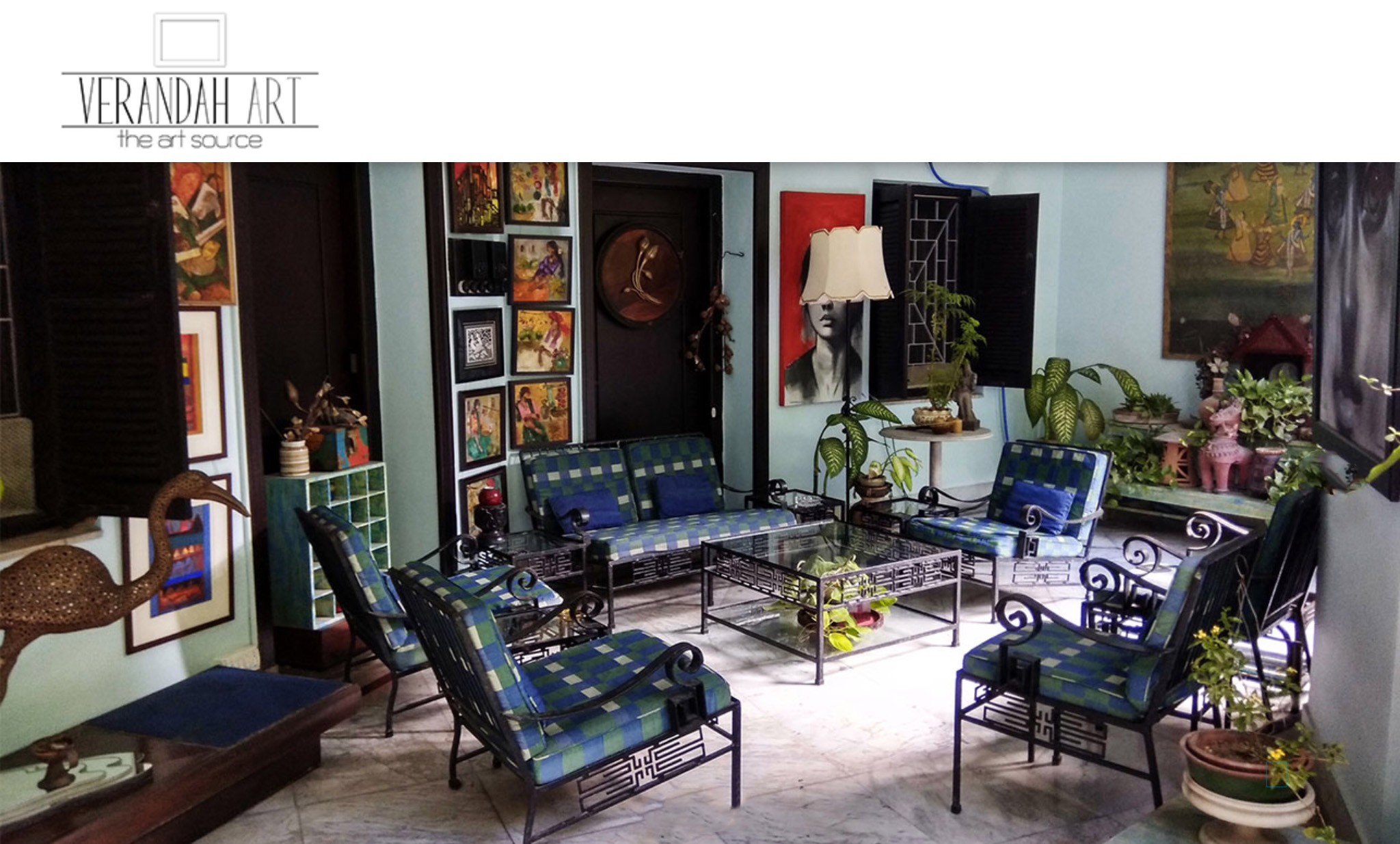
“The Verandah Art Gallery was conceived in the year 2000 with a vision to celebrate the unsung talent of upcoming artists from the Indian spectrum, with a specialized focus on Bengal.
The curator, experienced in art, discovered an immense potential in the field of Indian contemporary Art and realised the need to showcase the incredible creativity and aesthetics to a global audience.
Various local artists like Sanatan Dinda, Chandra Bhattacharjee, Jagannath Paul, Arpan Bhowmik and Kanchanmala Ghosh were discovered young and currently have a presence in the international art markets.
This exemplifies the success of the gallery in discovering and showcasing extraordinary art globally.” Myna Kakar, https://verandahart.com/
The painting used as a backdrop for the Bengali Mustard Fish Curry dish is by the artist, Amiya Bhattacharya.
“Amiya imbues his paintings with deepened emotions and sensitivity through a highly personal palette and iconography. His hues range from burgundy to ochre to browns and rust, and to blues. Women populate his creative realms, depicted from the back with bare shoulders, from the side with long tresses. Amiya has exhibited extensively across India and overseas, his works are in many prominent collections across the country and abroad. He lives and works in Kolkata.” Verandah Art Gallery
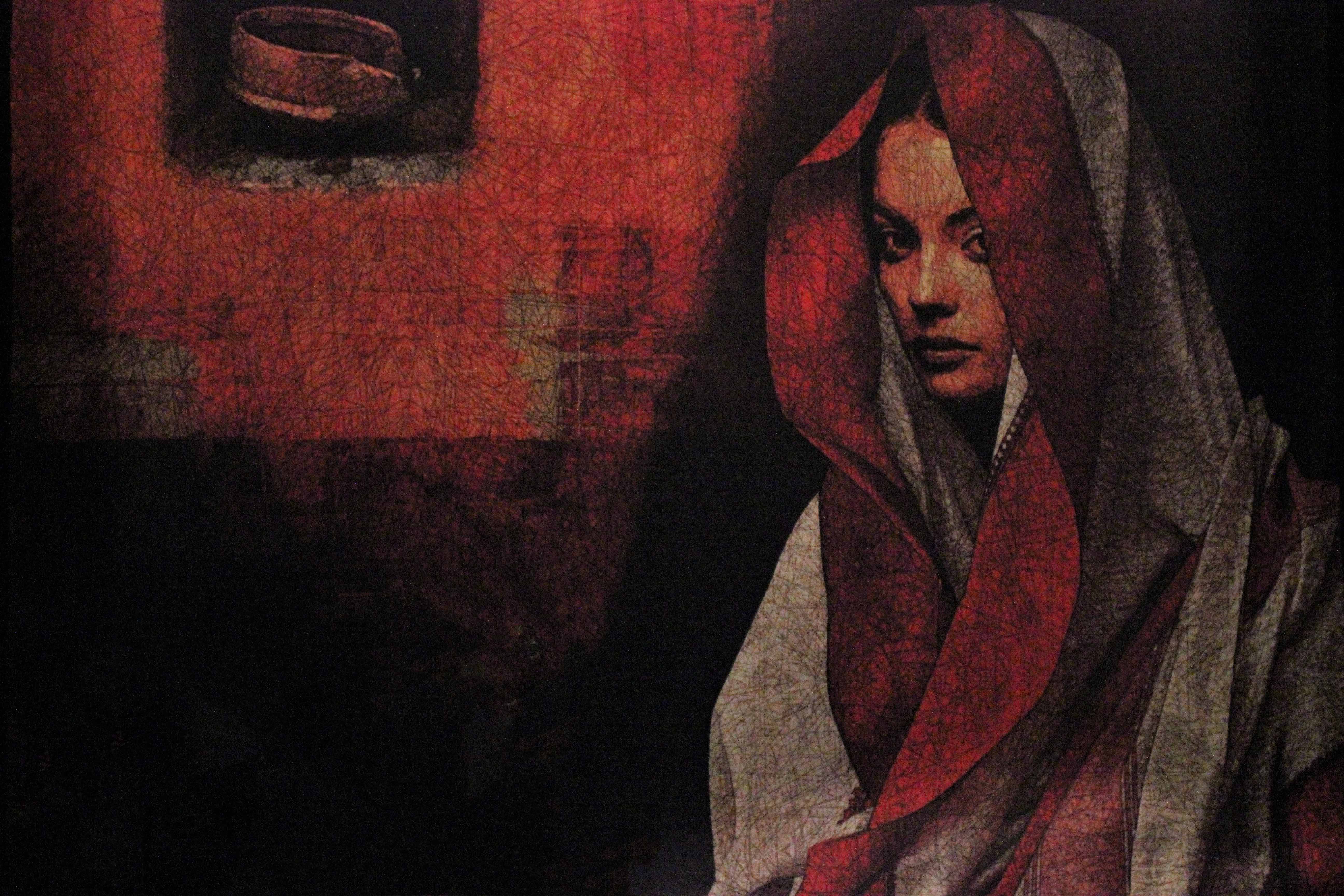
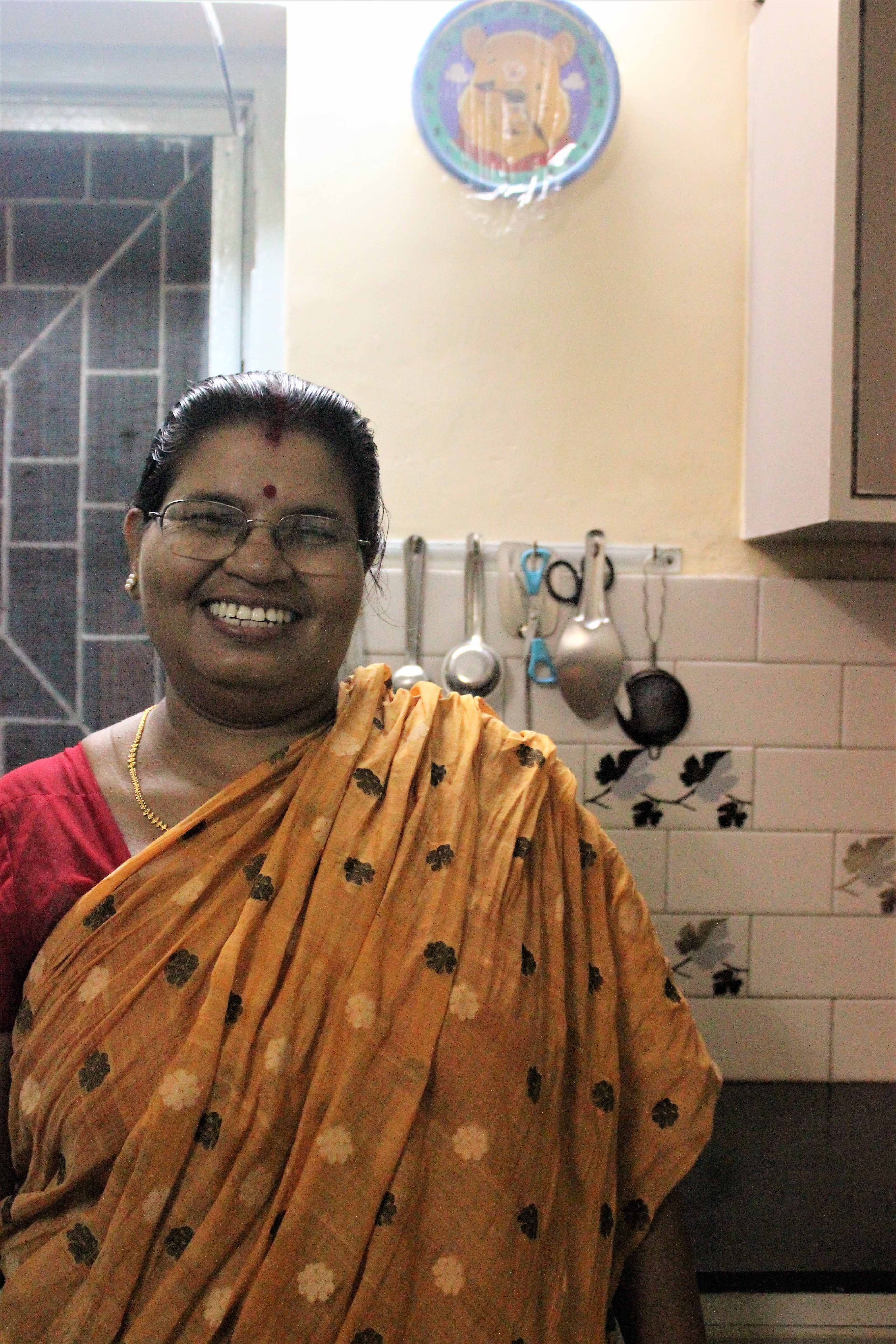
Kabita Mondal is from Bankura village in West Bengal, India. Her husband joined the Kakar family in Kolkata as a cook 20 years ago.
He knew the guest-house kind of cookery, a mish mash of various dishes but the patriarch of the Kakar family trained him well. Mondal, as he’s known, taught his wife how to cook when she joined the family 2-3 years later.
Now she has become an expert cook herself. They have two grown up sons and a daughter and four grand-children. She often cooks the Mustard Fish Curry for the Kakar family.
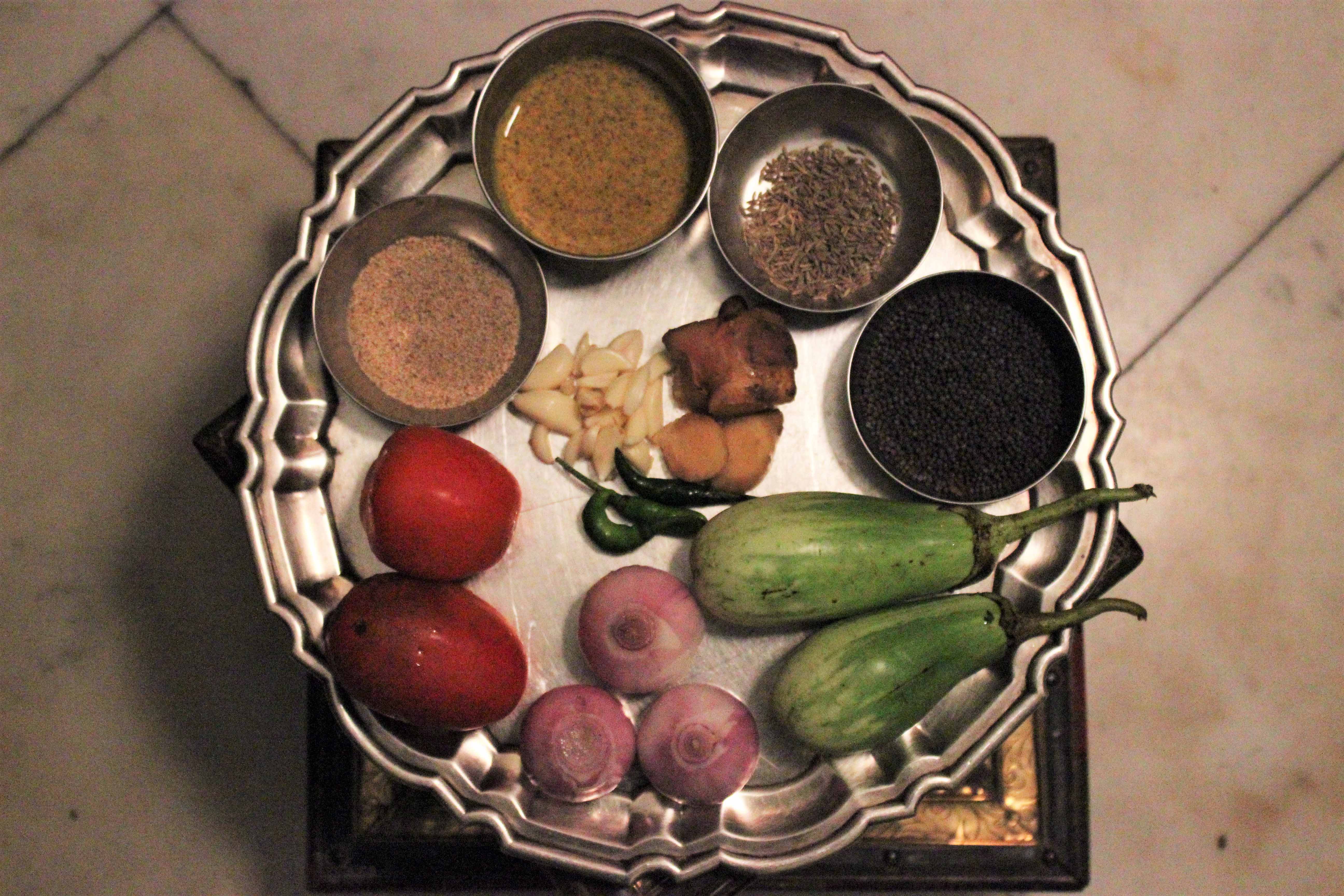
Kabita adds long green eggplants to the mustard fish curry so as to incorporate some vegetables in the dish. Though the recipe asks for ground black rai or freshly ground black mustard seed paste, for convenience she has starting using readymade Kasundi, a very pungent Indian mustard paste which is easily available in most grocery stores. She keeps all the different ingredients ready as the assembly of the dish is quite quick.
Fish is the dominant protein in Bengali cuisine. Almost every part of the fish is eaten and the head is considered a delicacy. Other spare bits of the fish are usually used to flavour curries and daals. Bengalis also extensively use freshly ground mustard paste. A pungent mustard sauce called Kasundi is a staple sauce used for flavouring in most dishes. Mustard oil is the primary cooking medium in Bengali cuisine.
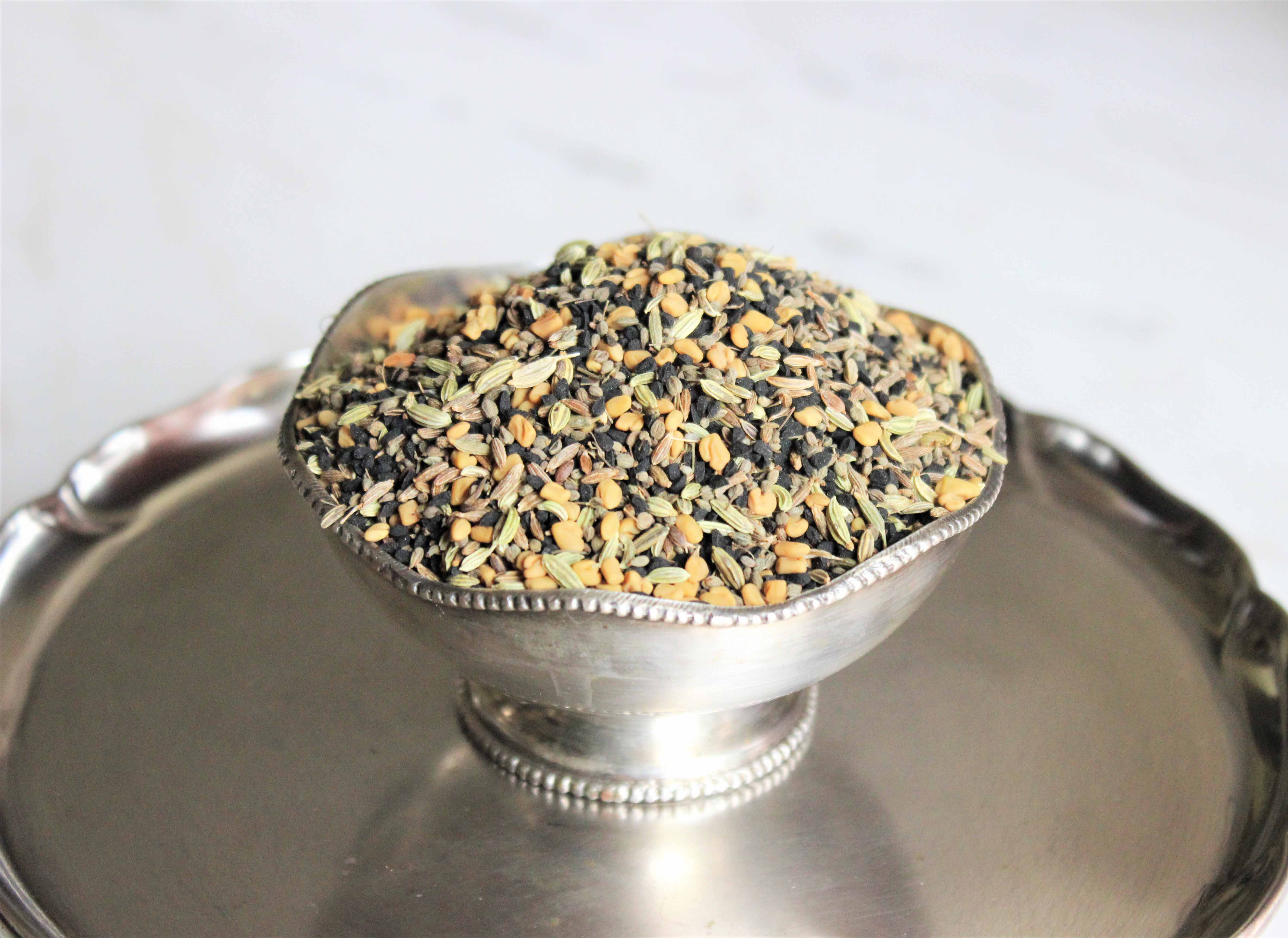
Another unique part of Bengali cooking is the addition of paanch phoron, a combination of whole spices including rai (black mustard seeds), jeera/kala jeera (cumin), kalonji (nigella seeds), methi (fenugreek seeds) and sauf (fennel seeds). It is used for tempering at the start or the end of cooking, as a flavouring special to each dish. The panch phoron is a general-purpose spice mixture. This mixture is convenient for vegetarian dishes and fish preparations.
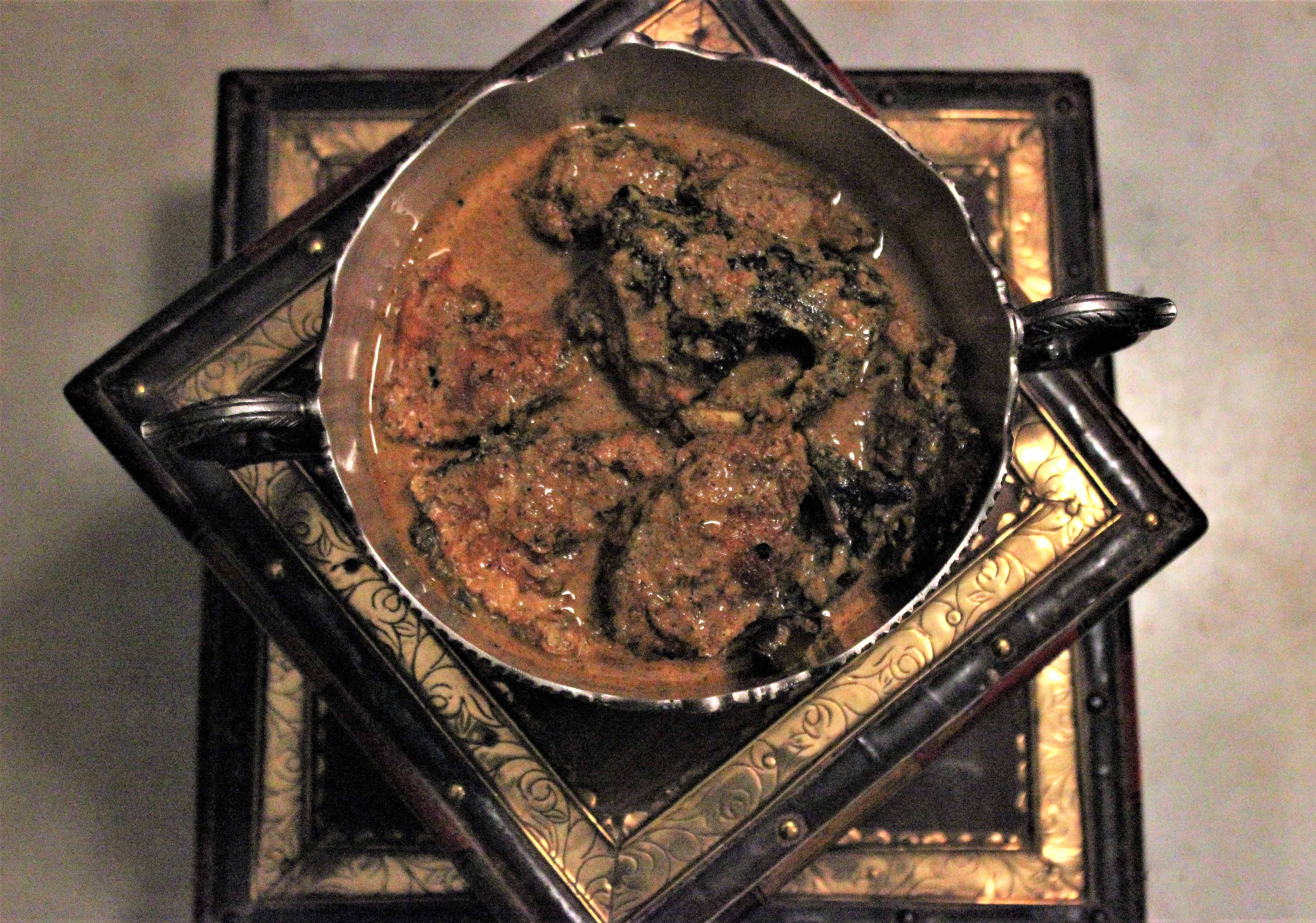
Macher Jhol
Bengali Mustard Fish Curry
Ingredients ~
1 kg fish ~ Rohu, Becti, or any sea/fresh water fish of choice
75 gms black rai/mustard seeds, ground to a paste
50 gms fresh ginger, ground to a paste
6-8 garlic pods, peeled and ground to a paste
3 tomatoes, medium size, chopped
2 red onions, medium size, sliced finely lengthwise
2 green eggplants
½ tsp red chilli powder
½ tsp turmeric powder
Salt to taste, as the potency differs
~ for marination
~ for gravy
1 tbsp paanch phoron mixed spice made up of rai(black mustard seeds), jeera/kala jeera(cumin), kalonji(nigella seeds), methi(fenugreek seeds) and sauf(fennel seeds)
50 gms coriander leaves
3-4 thin green chillies
250 ml mustard oil for frying
1 tbsp raw mustard oil for garnish
500 ml water
Preparation ~
1. Cut the fish into rings and remove the centre bone.
2. Marinate the fish by rubbing turmeric and salt on it.
3. Make a paste with the ginger-garlic.
4. Grind the fresh black mustard seeds, and strain to remove the skins.
5. Slice onions thin, lengthwise.
6. Chop tomatoes fine.
7. Cut the green eggplants into 2inch batons and slit down the centre.
8. Slit the green chillies lengthwise.
9. Remove the coriander leaves from the stems and chop coarsely.
Method ~
1. Fry fish in hot mustard oil, lightly.
2. Remove the fish leaving the excess oil in the pan.
3. Re-heat the oil and when it is smoking, add the paanch phoron spice and slit whole green chillies.
4. When the whole spices splutter, this will happen instantly as the oil is very hot, lower the flame to medium. Add the onions and cook the onions till soft.
5. Add the ginger-garlic paste and stir till fragrant.
6. Stir in the chopped tomatoes and cook till the mixture is well blended.
7. Add the red chilli powder, salt to taste and stir fry.
8. Strain the fresh mustard paste and add to the mixture, fry for a minute then add water for the gravy. When the water comes to a boil, add the fish and the green eggplants. Cook for 4-5 minutes.
9. When the fish is cooked through add 1 tbsp raw mustard oil and garnish with fresh coriander leaves.
~ Serve piping hot with simple boiled rice to soak up the gravy.

